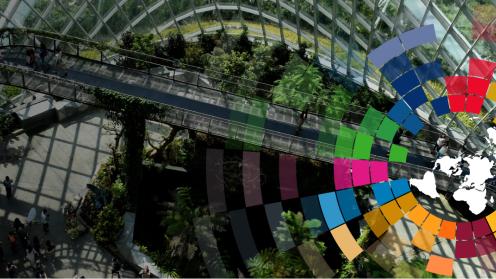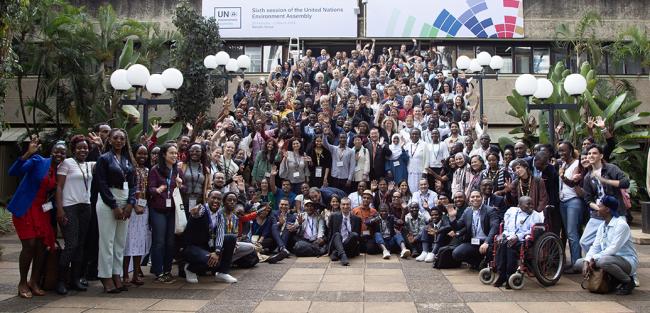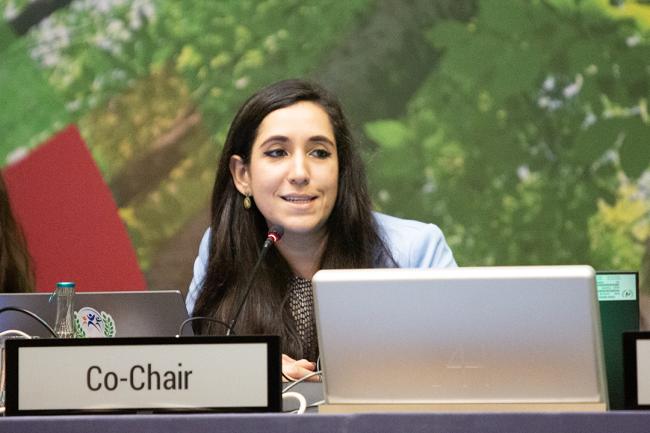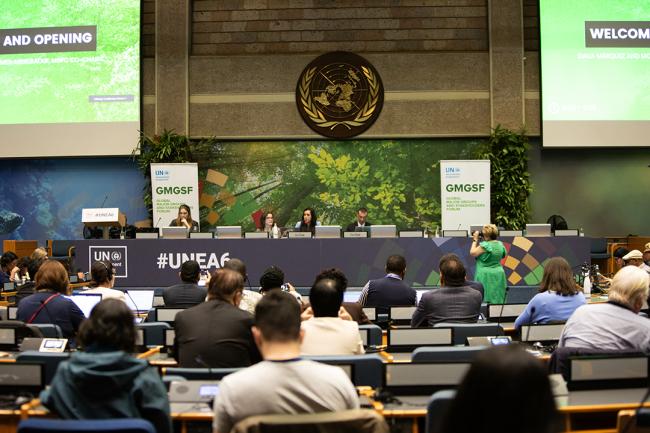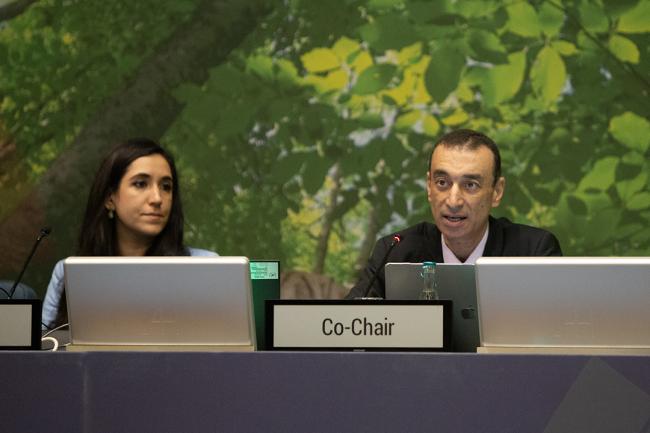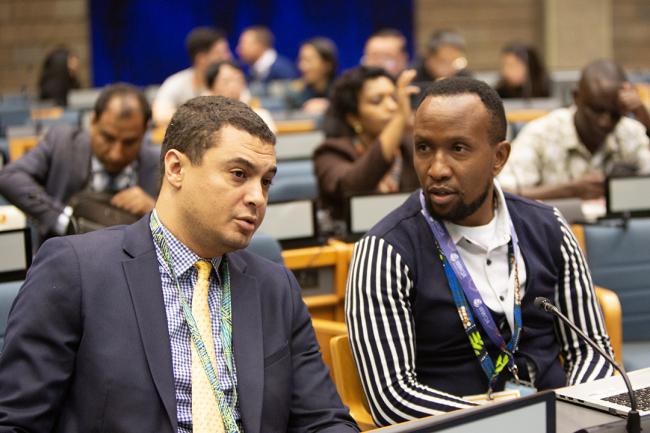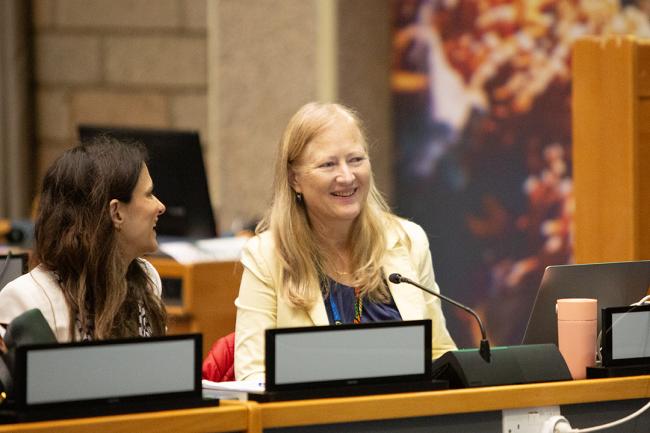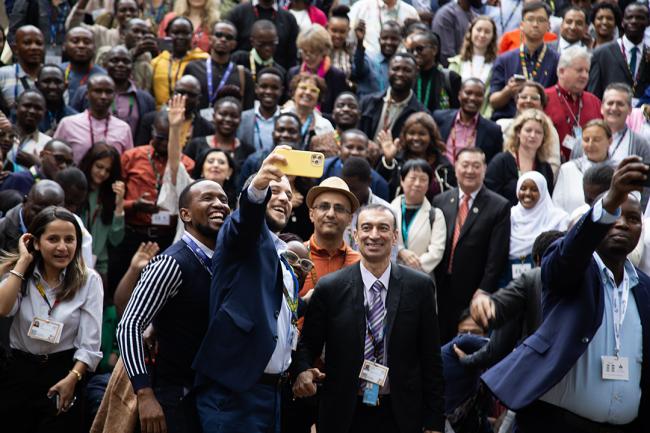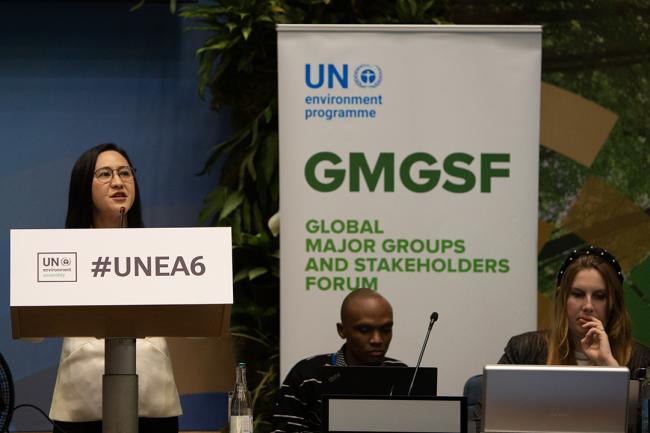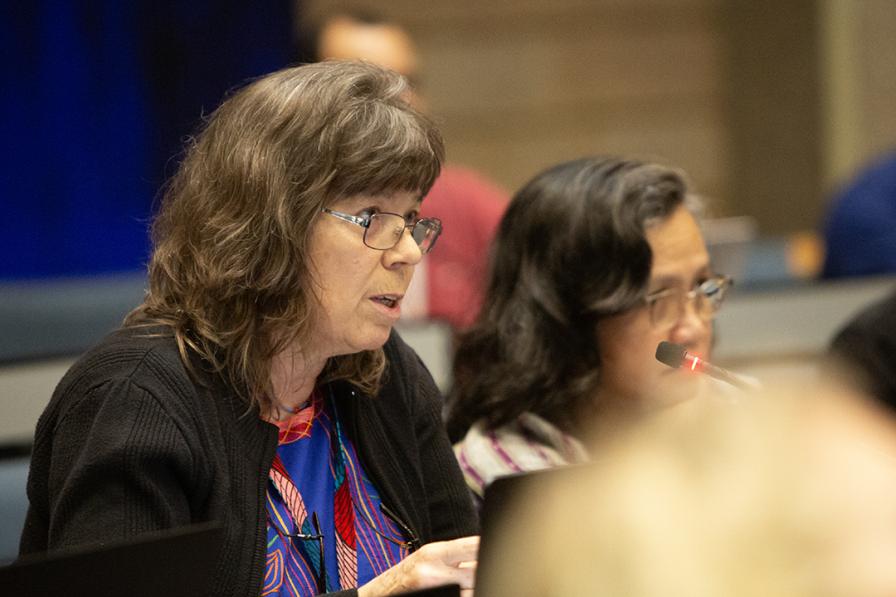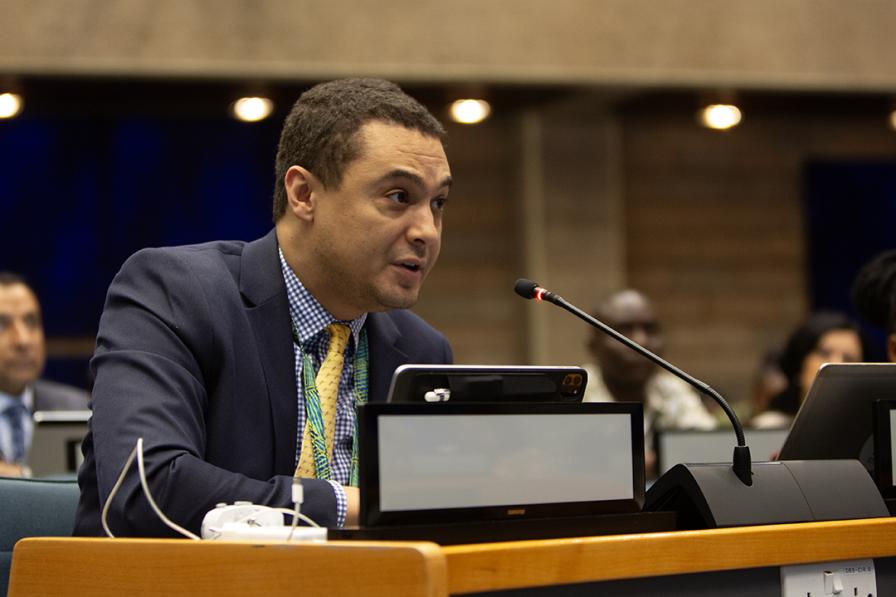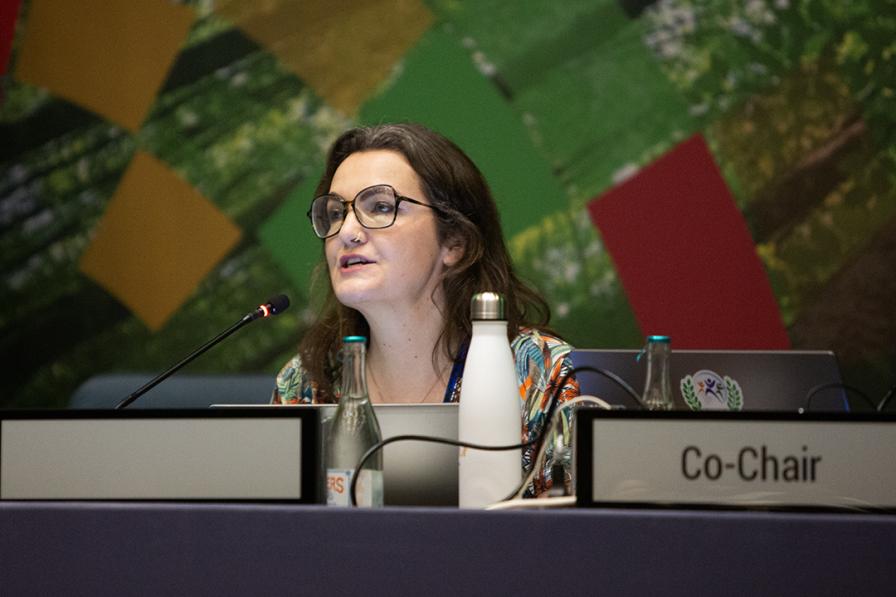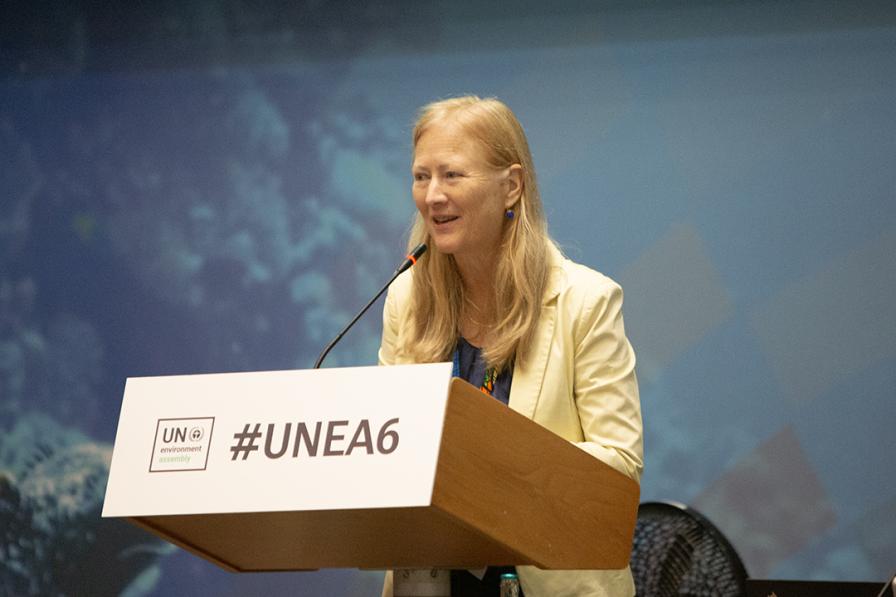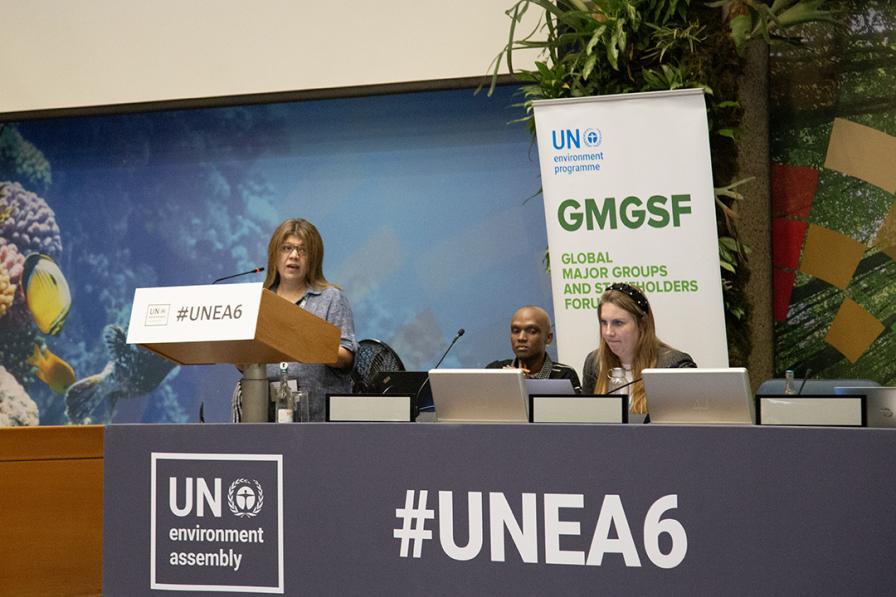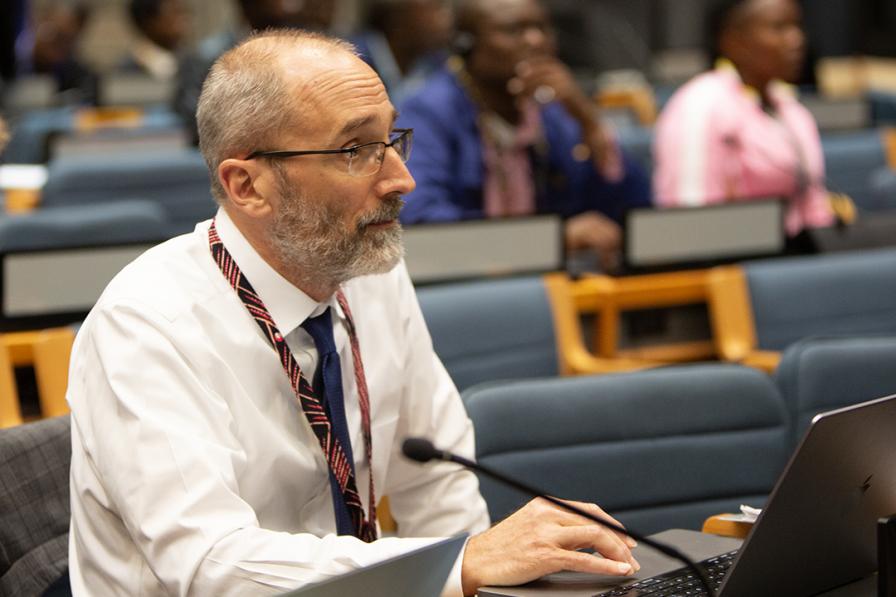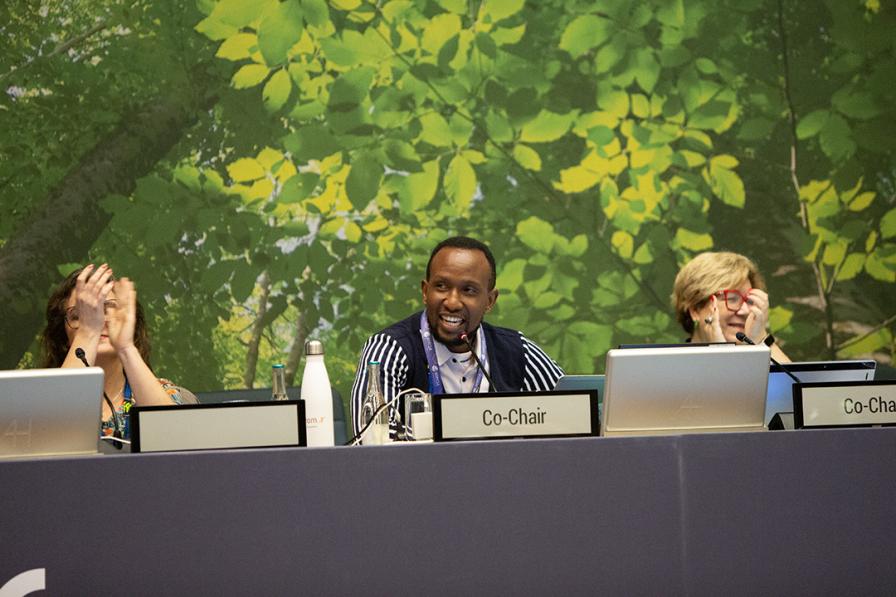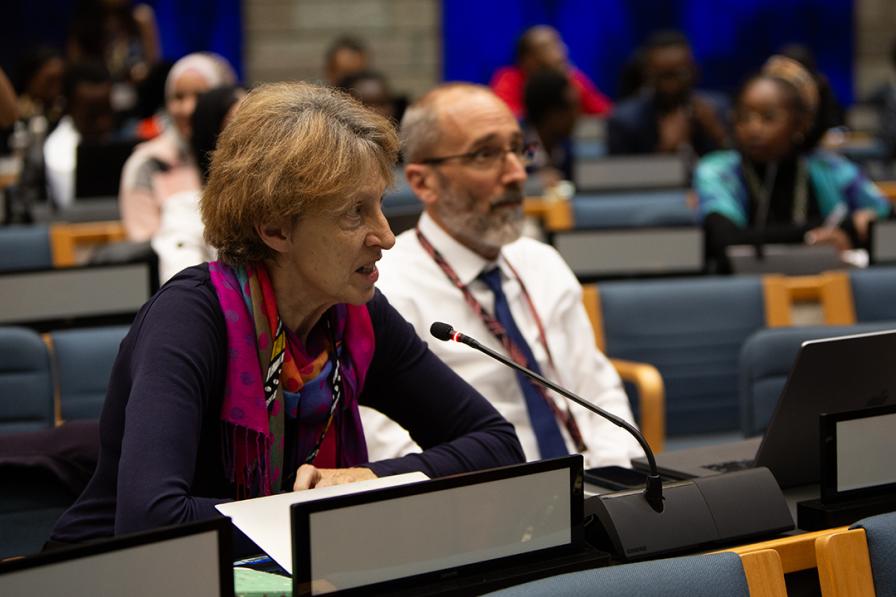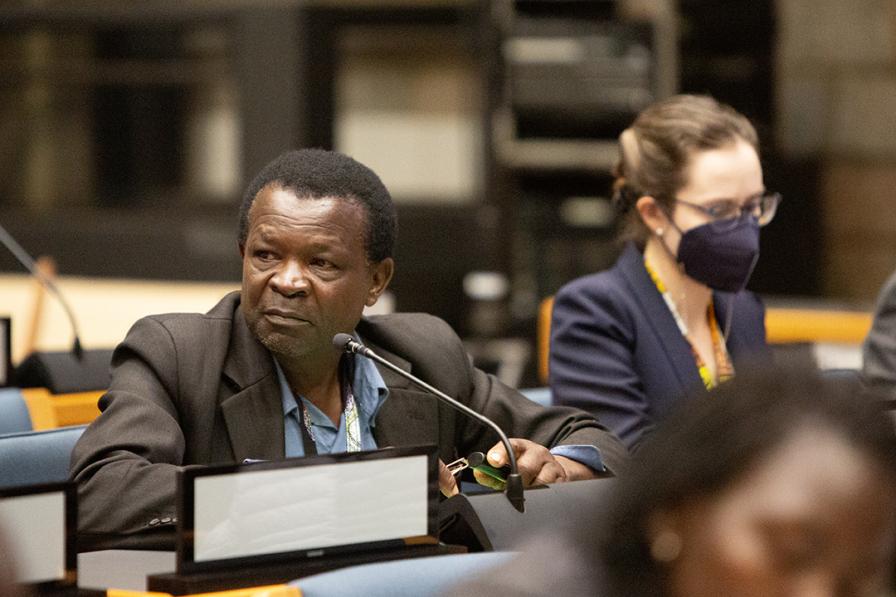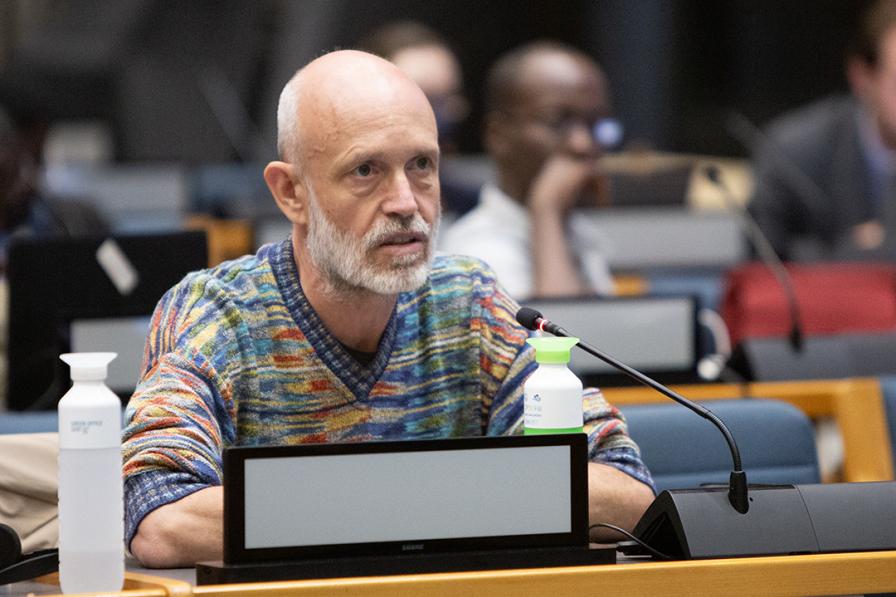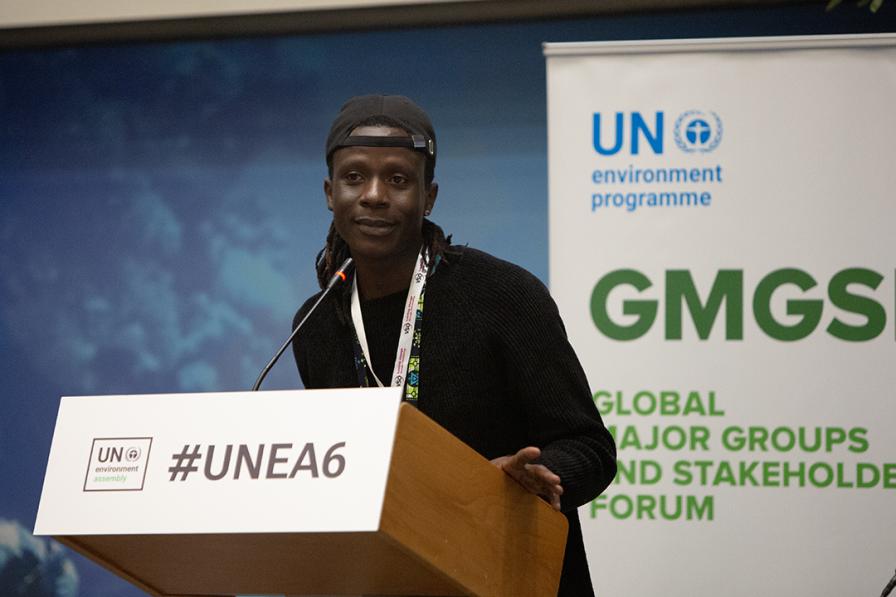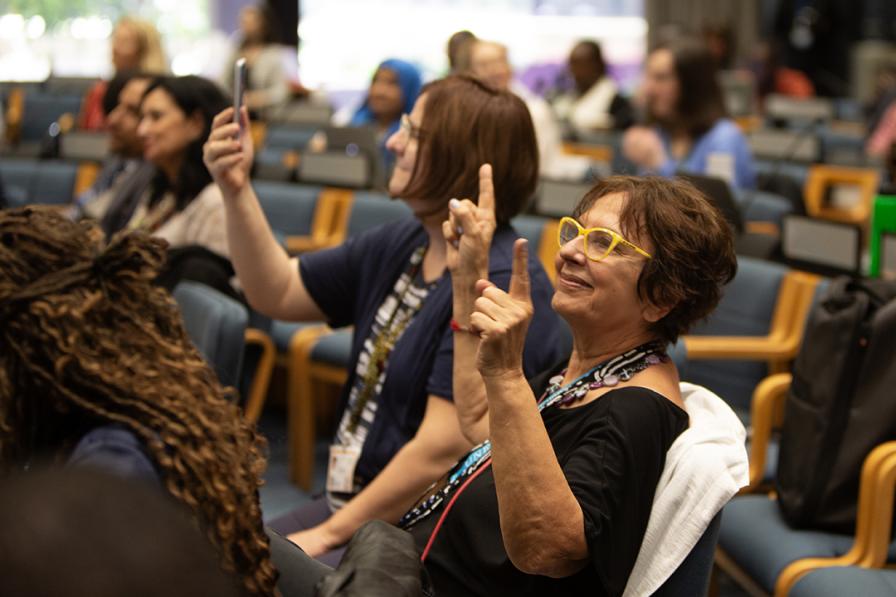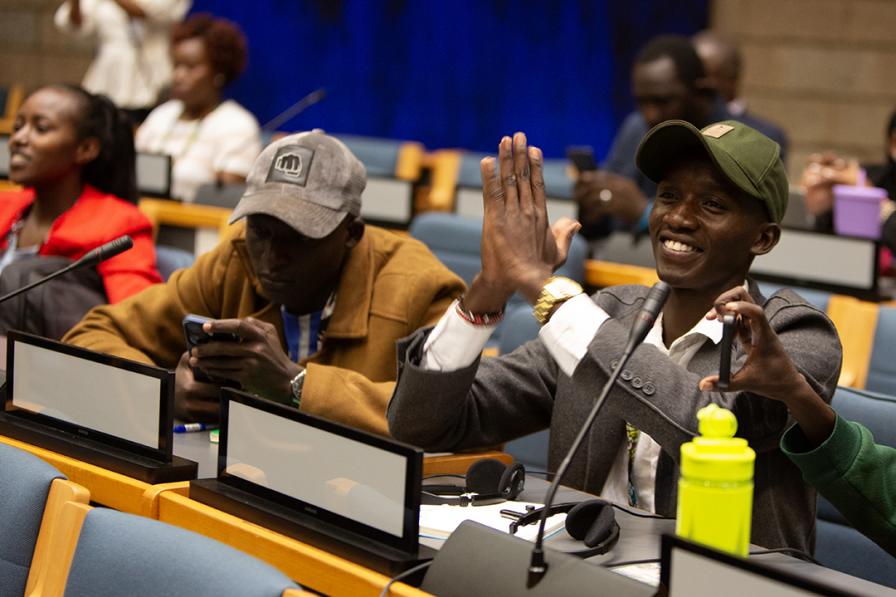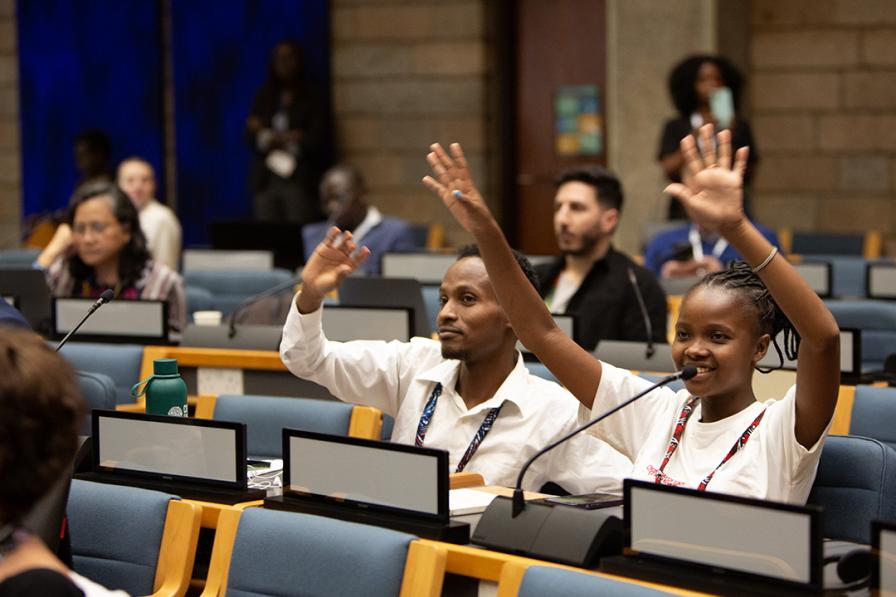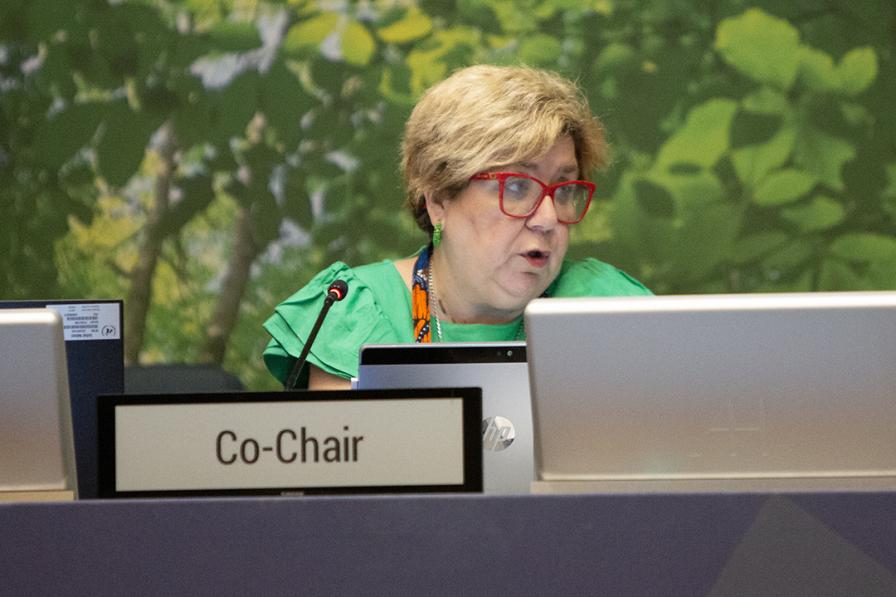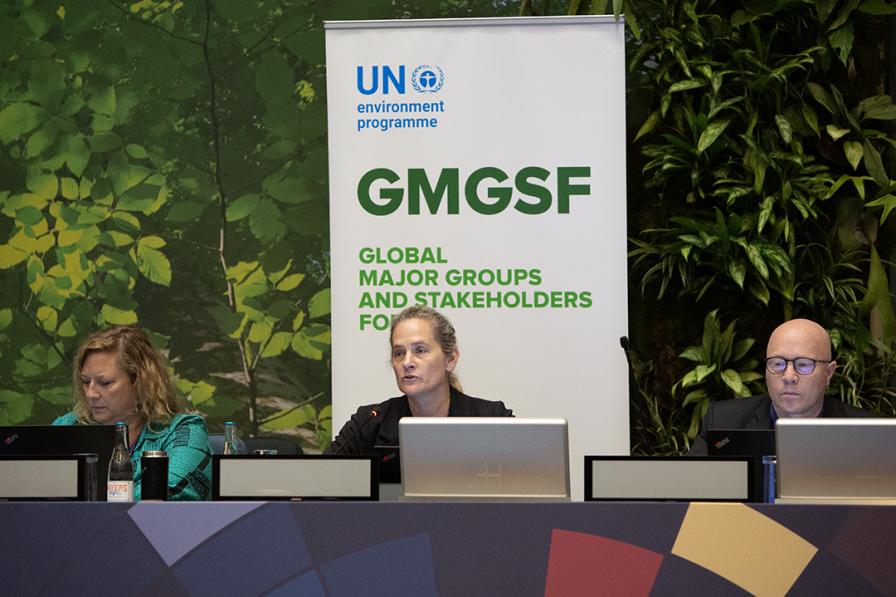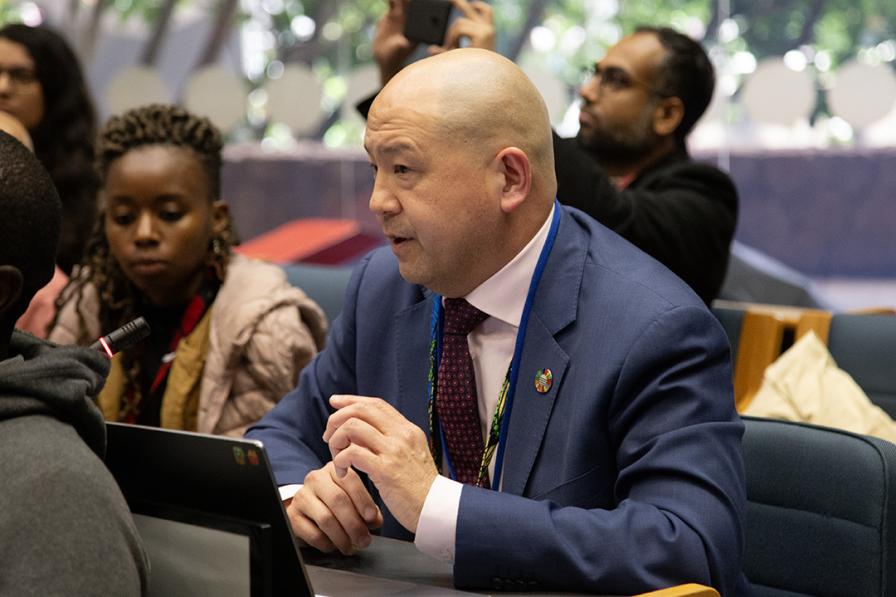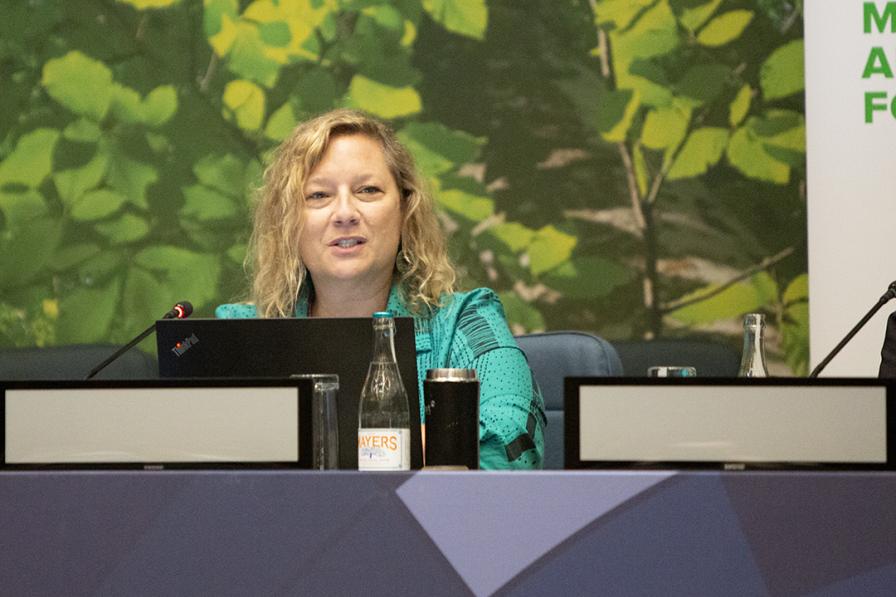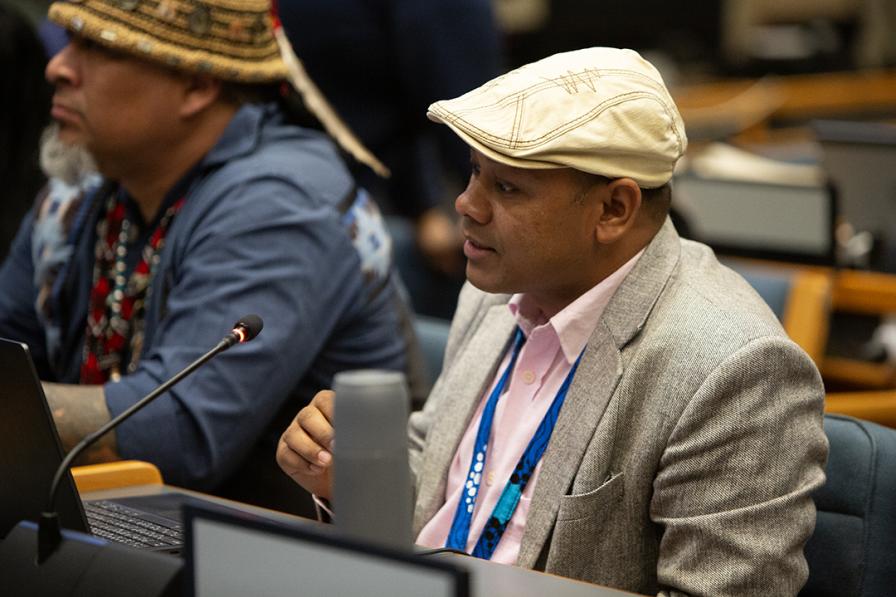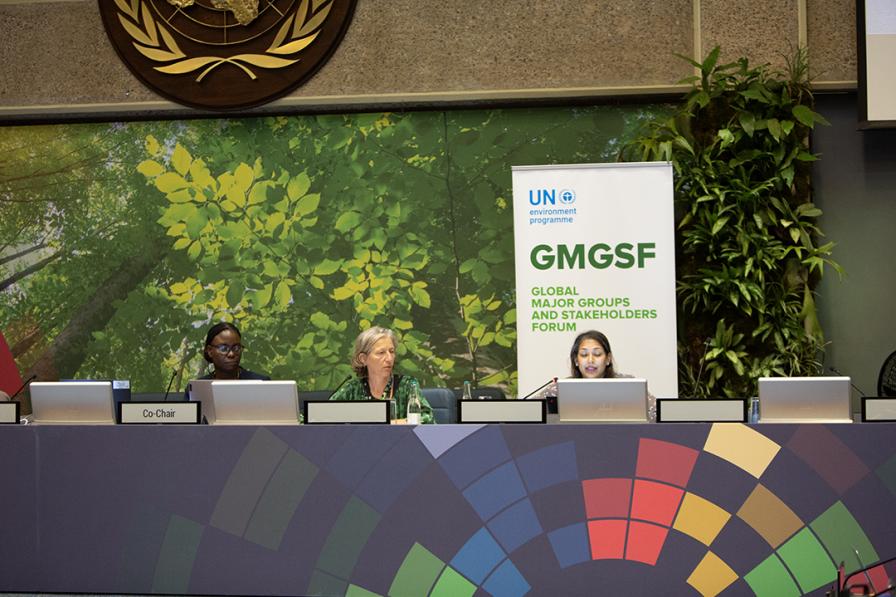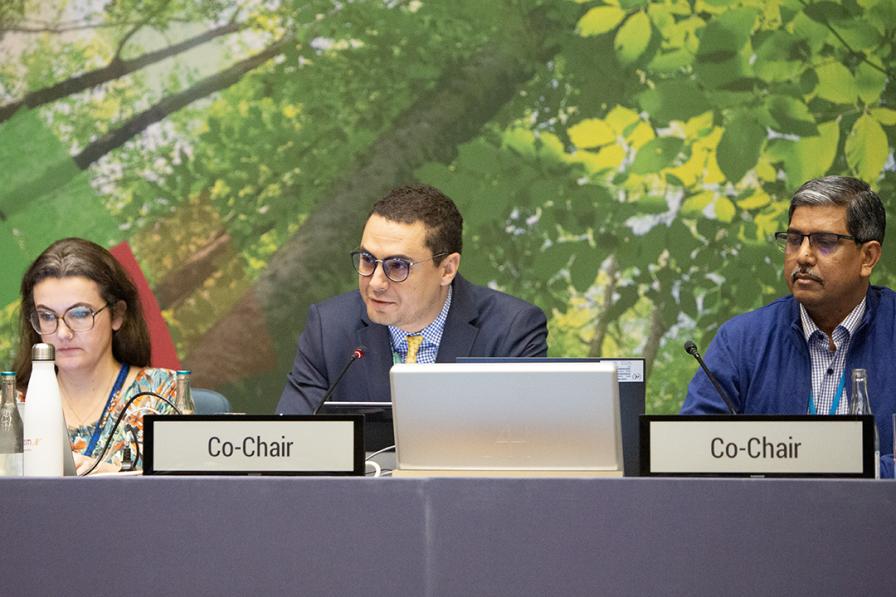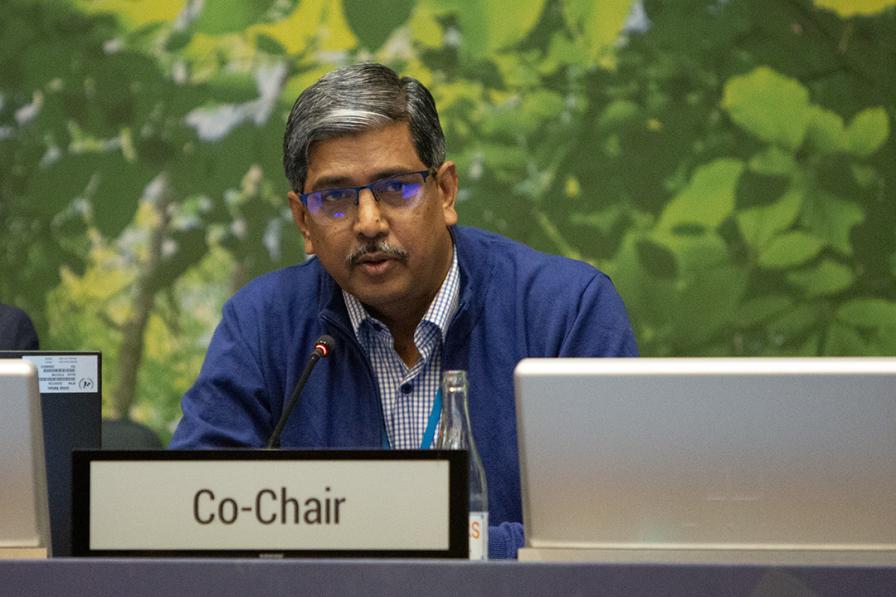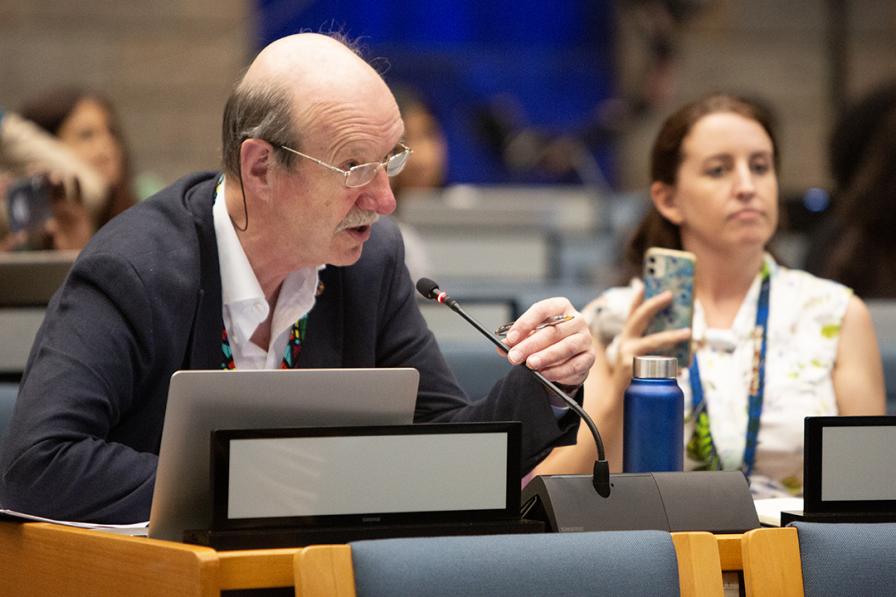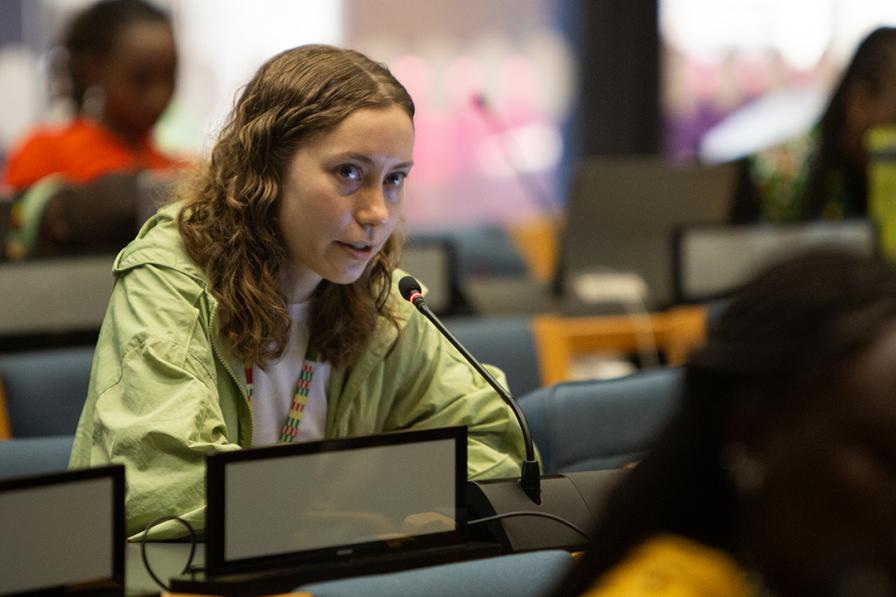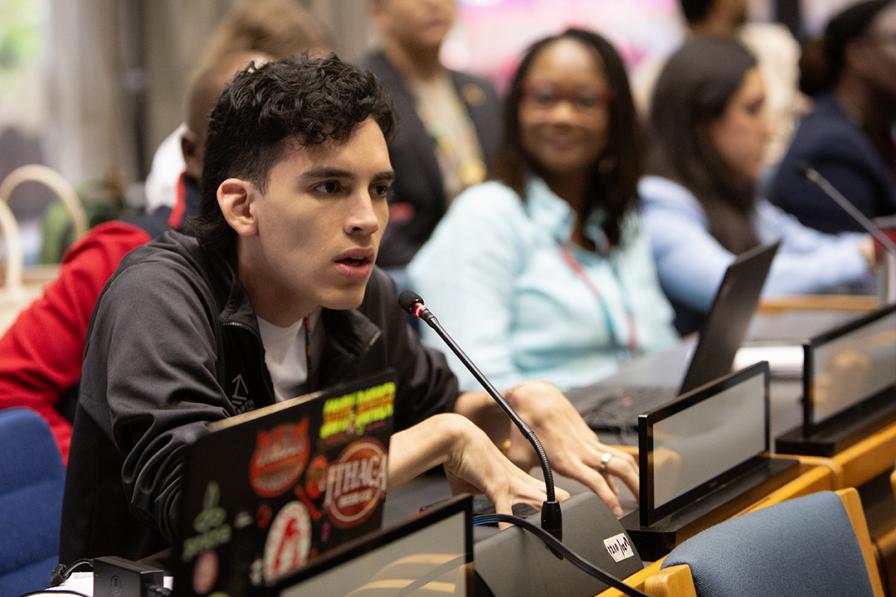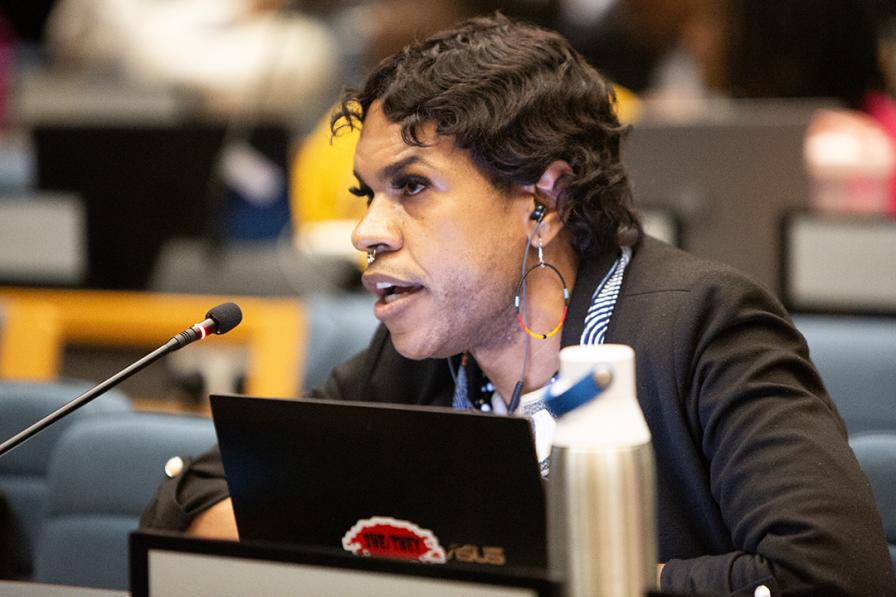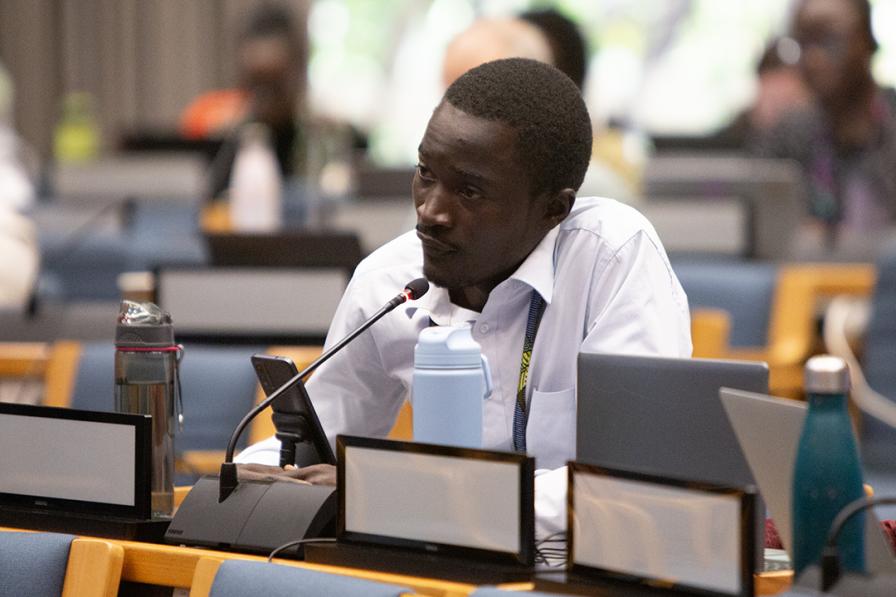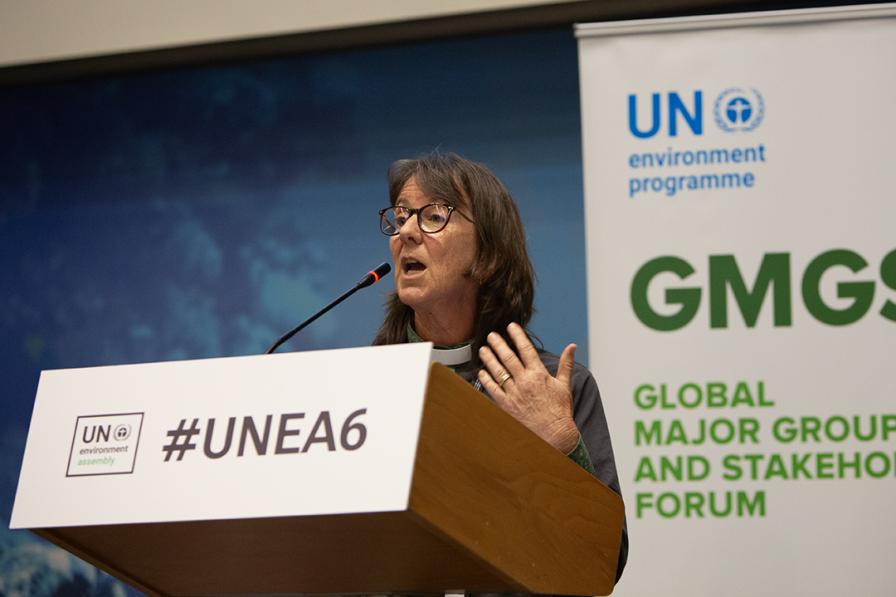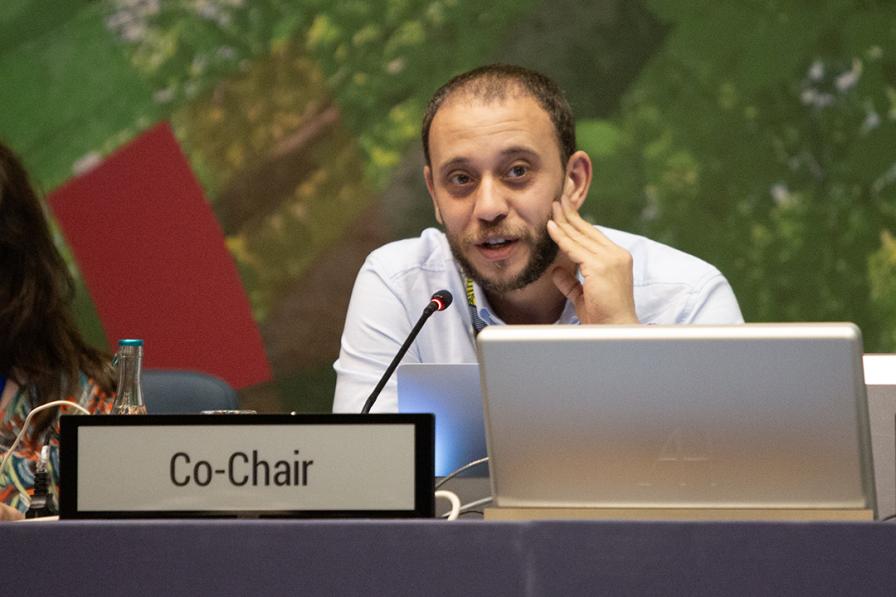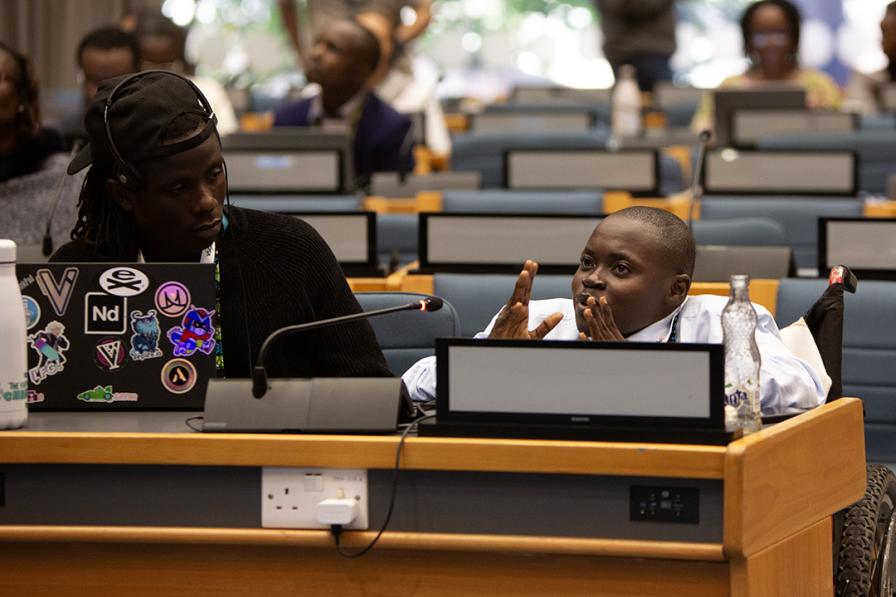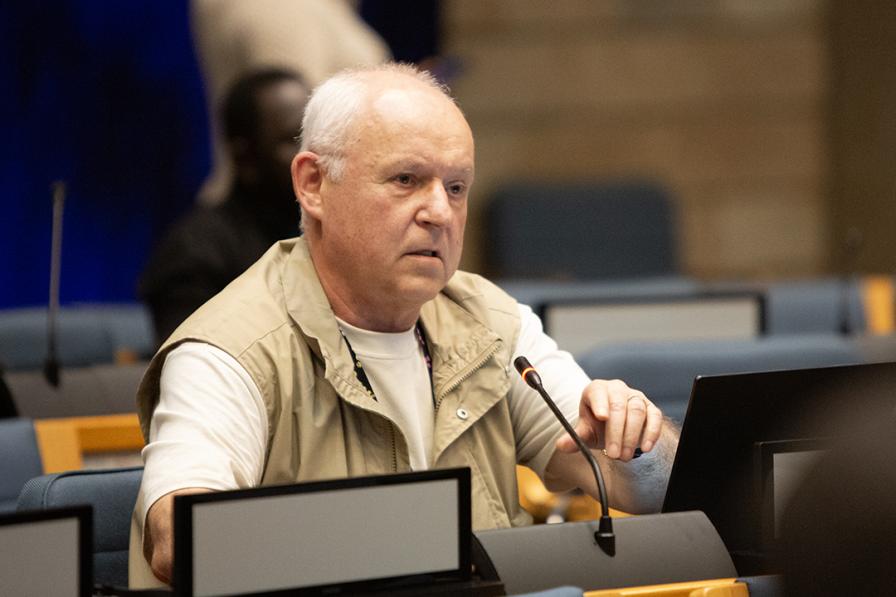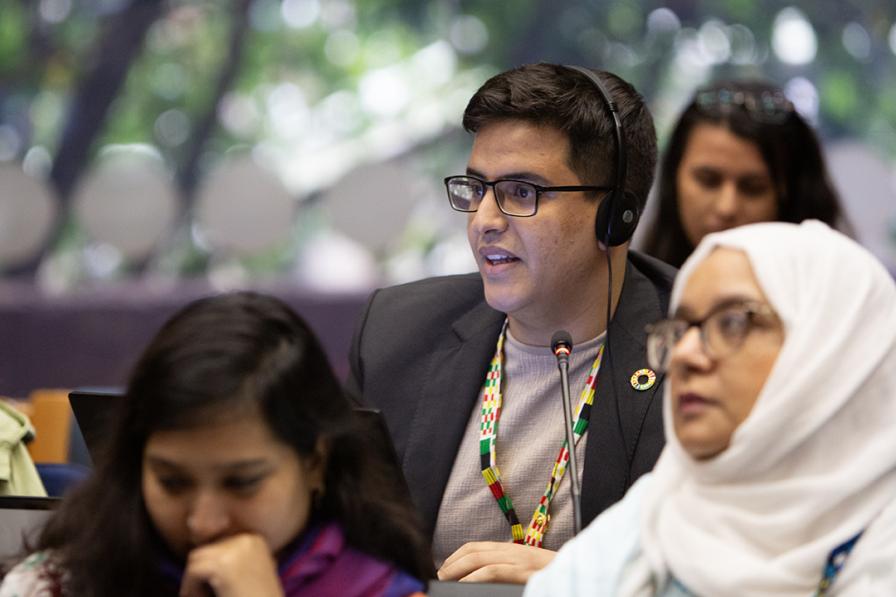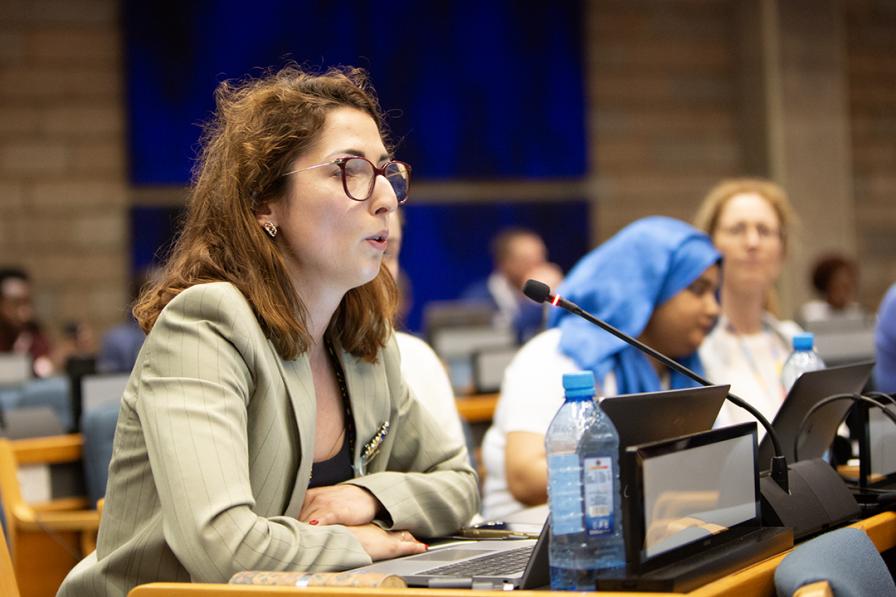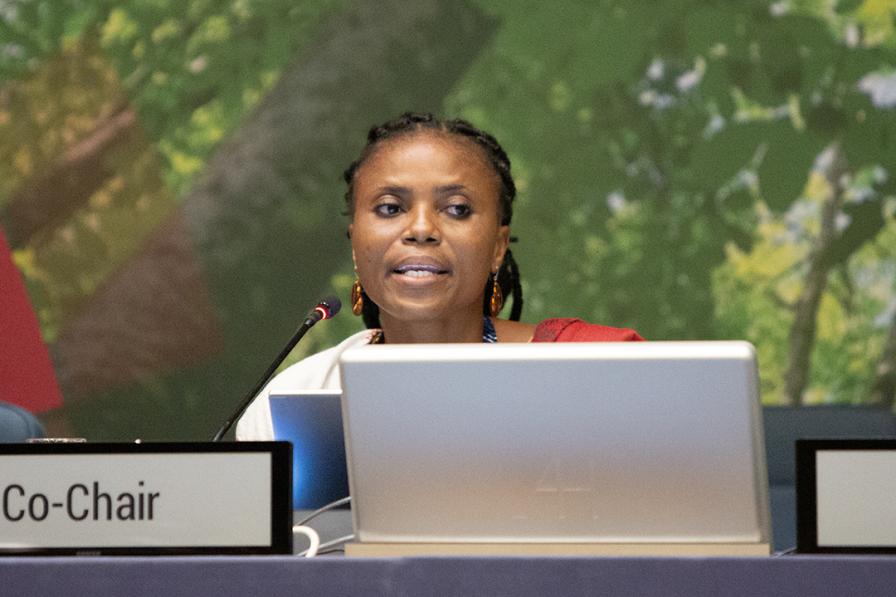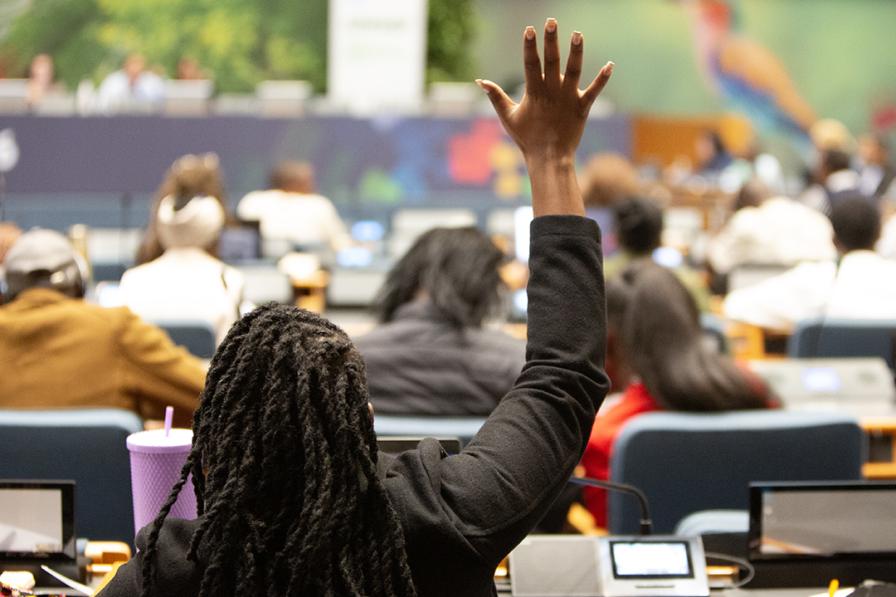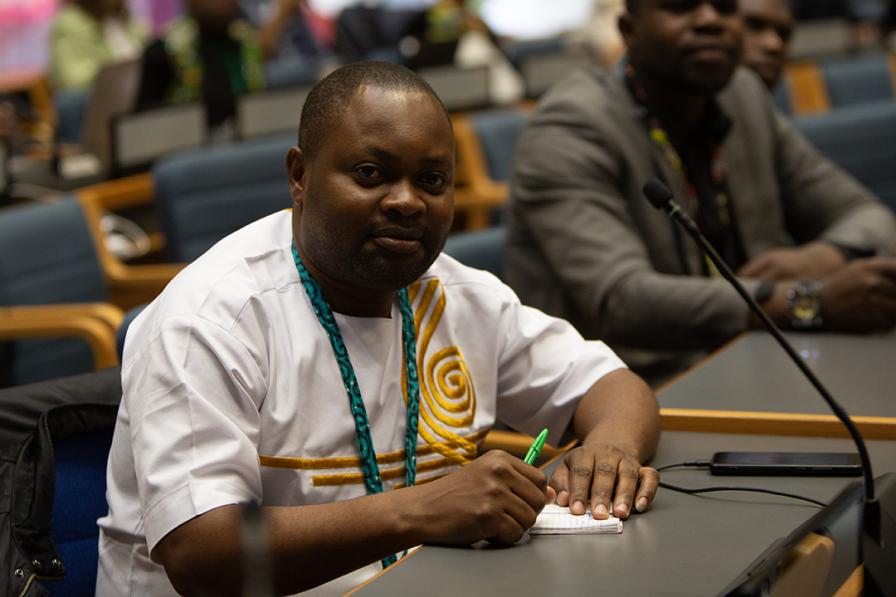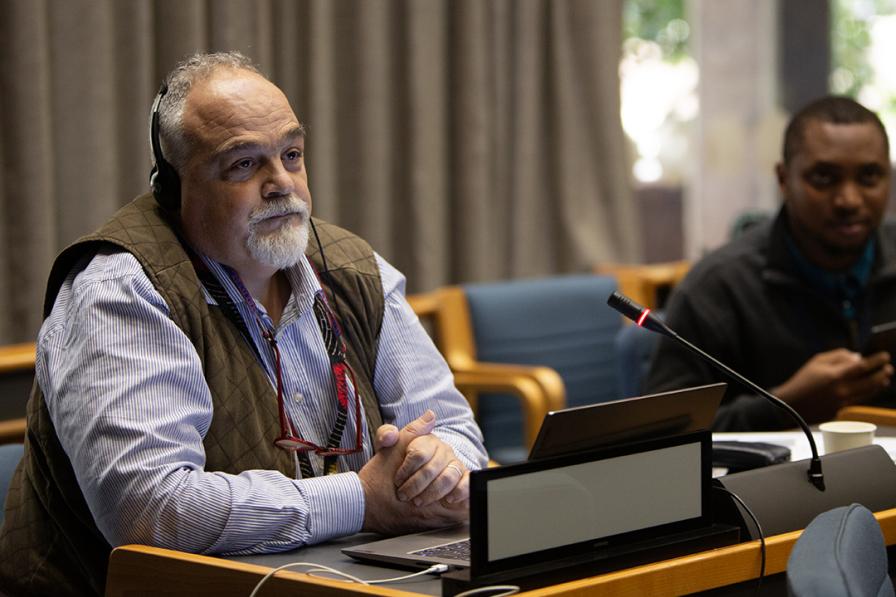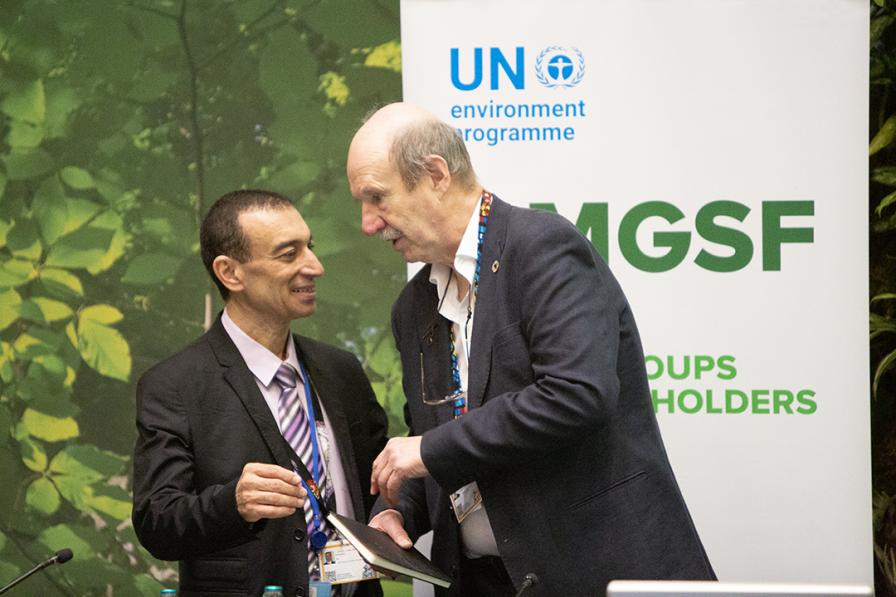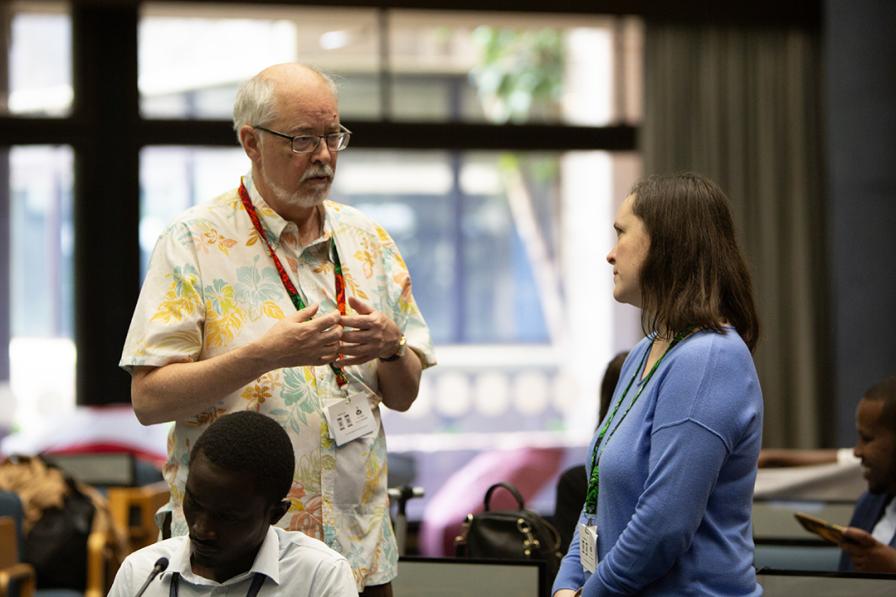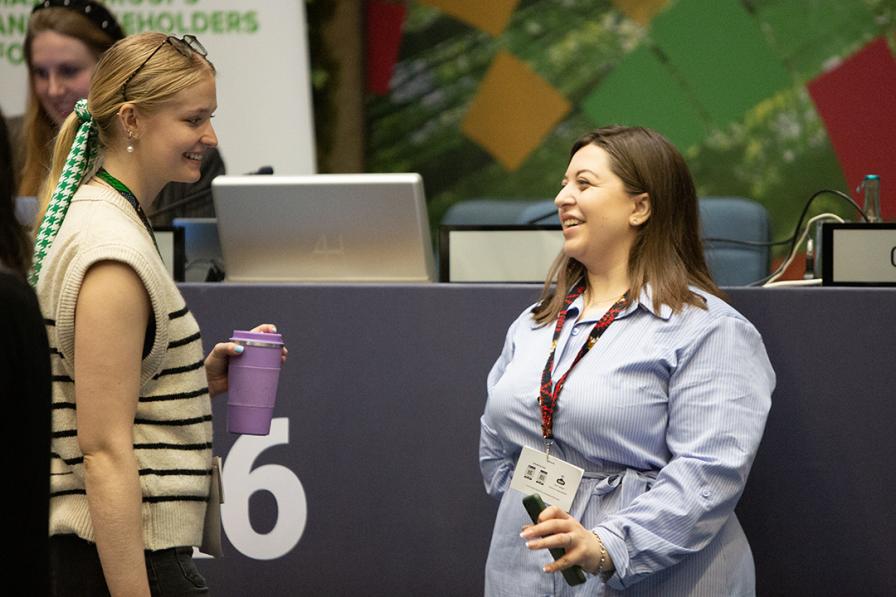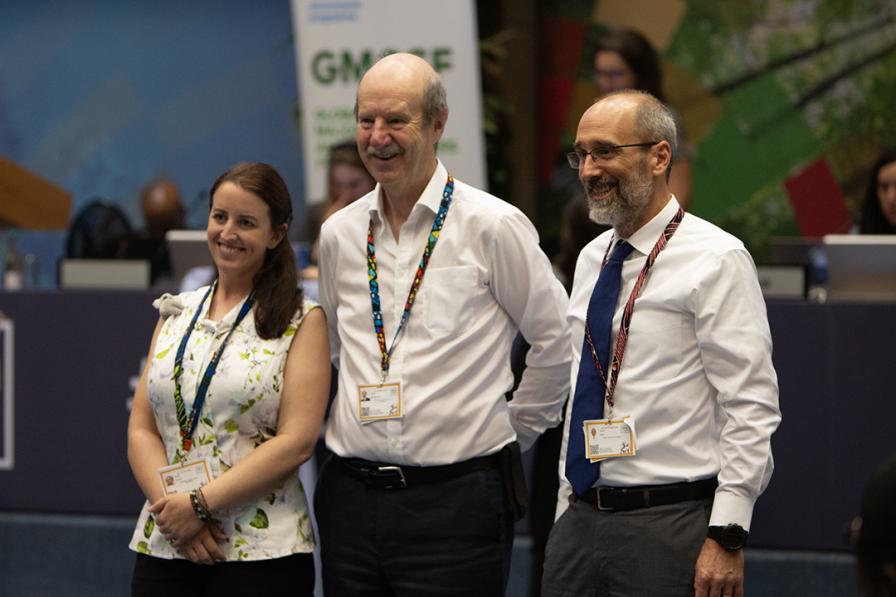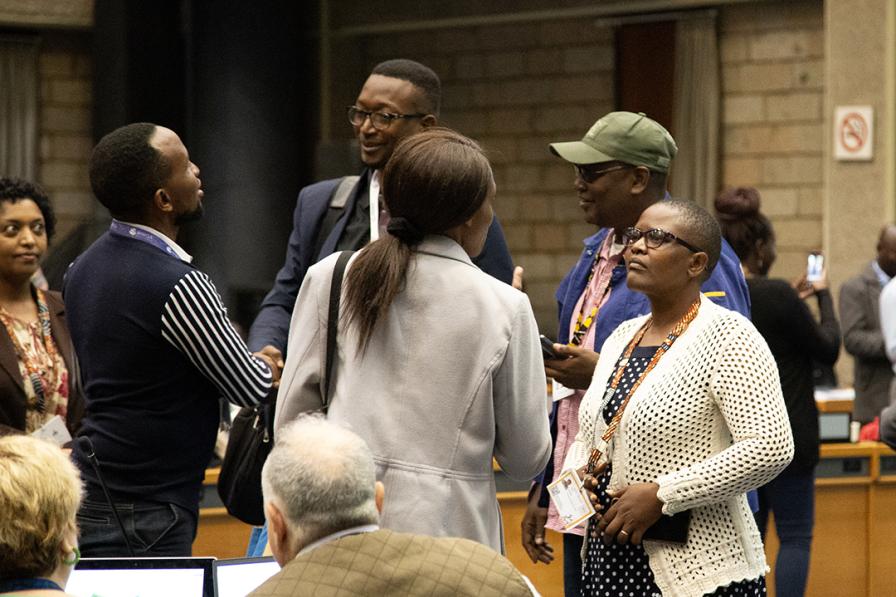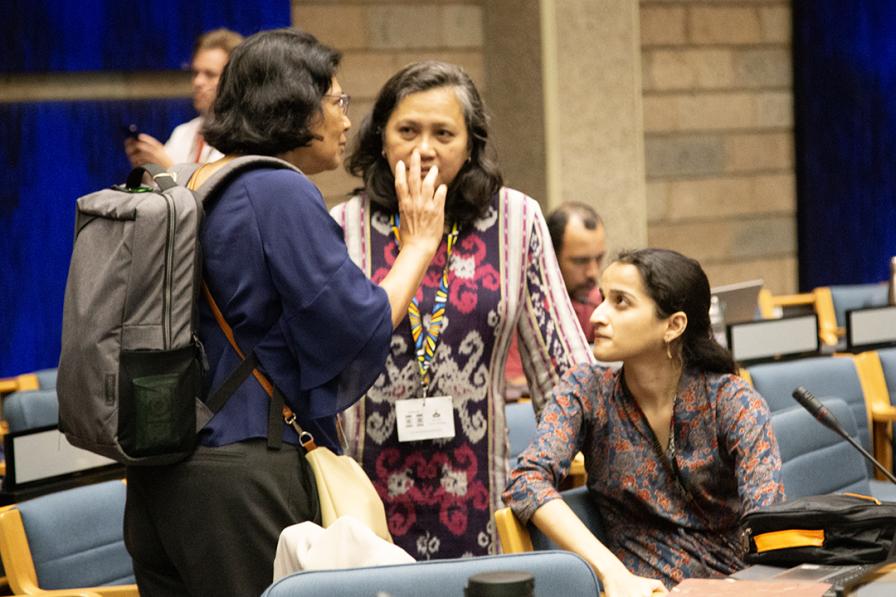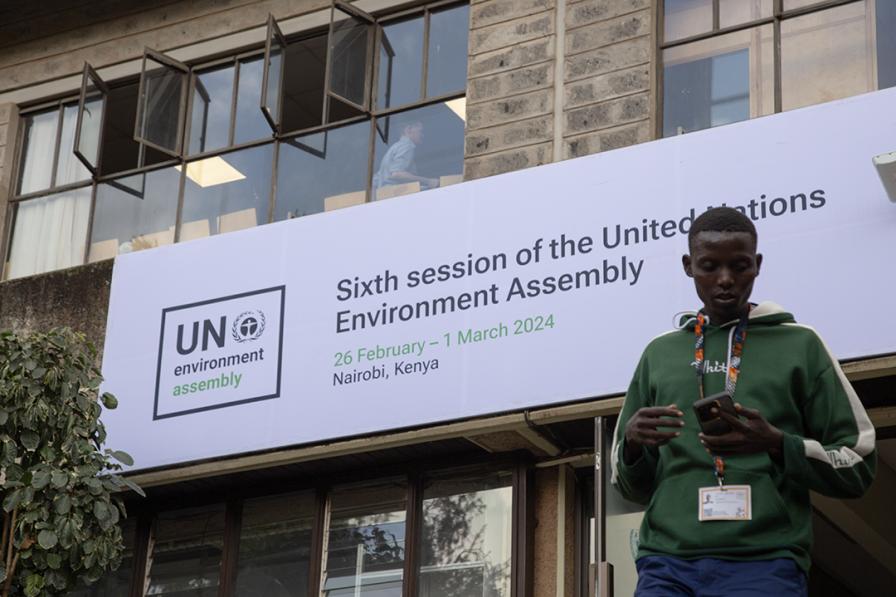Before commencing a substantive review of the agenda of the upcoming sixth session of the UN Environment Assembly (UNEA-6), the 20th Global Major Groups and Stakeholders Forum (GMGSF-20) held a “solidarity moment” with victims of the ongoing war in Ukraine, Palestine, and Sudan. Three civil society representatives provided harrowing accounts of the human and environmental toll of the conflicts that have seen millions displaced, hundreds of thousands killed or maimed, and increasingly larger segments of the population facing starvation and disease due to the destruction of basic infrastructure and ecosystem services. The speakers appealed for urgent, coordinated, and scaled up global action to avert the devastating impacts of “genocide and ecocide.”
Participants spent the rest of the day on a systematic review of the five UNEA-6 resolution clusters. For each cluster, the GMGSF Co-Facilitators and UN Environment Programme (UNEP) Technical Focal Points provided an overview of progress made in the negotiations during the intersessional period as well as during the sixth meeting of the Open-ended Committee of Permanent Representatives (OECPR-6) (which took place from 19-24 February). This was followed by contributions from resolution focal points and other Major Groups and Stakeholders (MGS) representatives highlighting key issues of concern.
The following are some highlights from the cluster discussions that took place throughout the day.
Cluster A comprised five resolutions spanning: highly hazardous pesticides (HHPs); sound management of chemicals and waste; regional cooperation on air pollution; combatting sand and dust storms; and solar radiation modification (SRM)). Speakers highlighted, among other issues:
- language calling for a strong global alliance to respond to the massive human and environmental toll of HHPs;
- promoting international partnerships to combat sand and dust storms, and their impact on women and other vulnerable groups; and
- supporting a proposed global agreement on air quality standards that match or exceed World Health Organization thresholds.
Many speakers opposed consideration of SRM, stressing it does not address the planetary scale of the climate crisis and is likely to have unintended consequences.
Cluster B comprised four resolutions covering: integrated water management; nature-based solutions; land restoration; and the Ocean and governance). Discussions highlighted, inter alia:
- concerns about reducing the inclusivity of a proposed group of experts to develop norms and criteria for nature-based solutions;
- the role of UNEP in the UN Biodiversity of Areas Beyond National Jurisdiction Treaty; and
- potential human rights violations and environmental impacts linked to large-scale land restoration projects.
Cluster C included four resolutions relating to various aspects of international environmental governance. Discussions addressed, inter alia:
- the need for a framework to integrate citizen science into the UNEA resolution process that could build on the UN Educational, Scientific and Cultural Organization (UNESCO) Recommendation on Open Science, or the UNFCCC negotiations on just transition pathways; and
- proposals for a special fund for the participation of MGS in ministerial forums for the environment.
Cluster D included five resolutions covering: transitions to circular economies; environmental aspects of minerals and metals; environmental assistance and recovery in conflict-afflicted areas; and behavioral changes towards sustainable lifestyles. The discussions highlighted, among other issues:
- the importance of a human rights lens to protect workers and consumers from toxic chemicals;
- support for a moratorium on sea bed mining and a ban on logging of forests for pallets; and
- the need to recognize that “plastics are toxic” and develop specific language to reduce their production and use.
Several speakers expressed concern about attempts to water down the resolution on environmental protection in conflict-afflicted areas, including through excluding civil society from the proposed consultative process on data gathering.
Cluster E comprised three resolutions on: the restructured Global Environment Facility; dates and provisional agenda for UNEA-7 and OECPR-7; and the management of trust funds and earmarked contributions. Co-Facilitator Djatougbe Aziaka, NGOs Major Group, noted Member States have yet to agree on the date for UNEA-7, with proposals on the table for December 2025 or February 2026.
More than 600 participants are attending GMGSF-20 in person and online.
